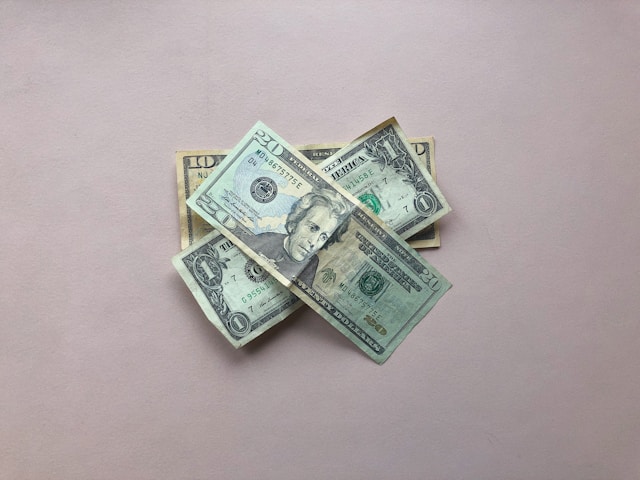You hear about climate change and nature loss, but there’s another problem: people, schools, and towns struggling with old debts. From doctor bills to school loans, unpaid debts can hurt budgets, cut back on green projects, and break trust.
People talk about who lent the money, but how debt is collected really matters. It can help communities get back on their feet or make things worse. In areas like schools, hospitals, local credit place, and shops, fair debt collecting can protect people, while bad practices can hurt them.
This piece looks at why good debt collecting isn’t just about money. It can help communities thrive, and picking the right debt collector is key.
How Debt in Different Areas Hurts the Environment
Schools & University; Pupil Debt
Colleges often use debt recovery companies to collect unpaid fees. Being too pushy with debt collection hurts relationships with past students, scare away new ones, and take money away from important programs. But being fair can keep the school’s good name and free up money for new ideas, green programs, and helping the local area. Stats say that 1 out of 5 students are behind on payments.
Hospitals / Doctor Debt
Some people go broke because of the unpaid hospital bills. If patients feel harassed, they might avoid getting care later, which isn’t good for the community. This is worse when areas are hit by things like floods or disease. Heavy-handed collecting can make things even harder for those already struggling. Near 58% of all debt collections belong to medical debt collection.
Small Shops and Business Debt
For smaller shops, unpaid bills can be a problem. It can hold back money, delay paychecks, or cut back on investments like solar panels. If these businesses are pushed too hard, they might have to close or cut corners on upgrades that help the environment.
How This All Connects to a Green Future
So, how does this relate to saving the planet?
People or businesses in debt might put off upgrades to their homes or businesses. They might buy cheaper, less eco-friendly products.
Town governments, already short on cash, might delay projects that help with climate change or keep parks in good shape when they have their own debts to pay.
Since debt touches everyone, from individuals to big groups to local areas, how debt is handled affects if communities can invest in a better future or just try to fix the damage.
What to Expect in Debt Recovery in 2025: Fairness, Tech, and Understanding
Using Computers Carefully
New tools like messaging and ways to divide up who owes money are making things faster. But there need to be rules: someone needs to keep an eye on things, and people need to agree to the messages. Studies show that letting computers do everything can lead to unfair situations.
If used wisely, these systems can cut back on harassment, create payment plans, and let people focus on tricky cases.
Putting People First
- Debt collectors are starting to focus on the person:
- Offering help when things are tough, like delaying payments or lowering the amount owed.
- Being clear about the terms and rights.
- Using different ways to communicate, like texts or websites, so people can choose what works for them.
A 2024 guide says that breaking down messages and offering self-service tools helps get debts paid and lowers complaints.
Following the Rules
Rules are still important. Debt collectors need to know the latest rules about consumer finance, data privacy, and fair collecting. Being open about audits and reporting complaints helps keep trust.
Doing Good
Debt collectors are being judged on how they act, not just how much money they collect. Some are adding things like collecting without lawsuits, approving payment plans, or having low complaint rates to their goals. This lines up with what people now expect from businesses.
What Good Debt Recovery Really Means
Good debt recovery isn’t just something companies say. It means balancing getting paid with being fair and following the rules. Trusted debt recovery companies, like Collection Recovery Services, contribute a lot to the process of good debt recovery. When a lender picks a debt collector that does things the right way, good things happen:
- Protecting Reputation: People see debt collecting as fair, not mean.
- Cutting Costs: Fewer lawsuits and fewer rule violations.
- Sustainable Recoveries: People are more likely to stick to payment plans if they feel respected.
- Meeting Social Goals: Showing that your money practices think about people and the environment.
One company’s approach is to be both gentle and tough, depending on what the client wants. That flexibility is key to trust.
Example: Helping a Town After a Flood
Imagine a town hit by a flood. Many people can’t pay doctor bills, school fees, or other bills because they lost so much. Pushing hard to collect debts could cause foreclosures or bankruptcies.
- Instead, a helpful debt collector could:
- Identify accounts in the flooded areas.
- Offer modified payment plans right away.
- Stop collecting temporarily while people rebuild.
- Communicate clearly to keep trust and avoid anger.
By doing this, the company gets back what it can while helping the community stay strong, so they can focus on rebuilding and getting ready for future climate problems.
Supporting Facts and Sources
A survey found that many people with doctor debt were contacted by collectors way too many times in a short period.
Data shows that school debt problems often get worse when schools hire outside collectors without protecting people.
Reports say that late payments increase during tough times, causing money problems for small businesses.
These facts show that debt collecting needs to change depending on the situation, not just follow strict rules.
In Conclusion
Debt in areas like schools, hospitals, credit unions, and small businesses is more than just about money. It affects society and the environment. Bad debt collecting can hurt people, slow down local economies, and delay climate action.
Picking a debt collector who does things the right way makes sure that the results are fair, legal, and help the community. In a world where everyone needs to work together to be strong and protect the environment, good debt collecting is part of the answer, not the problem.




